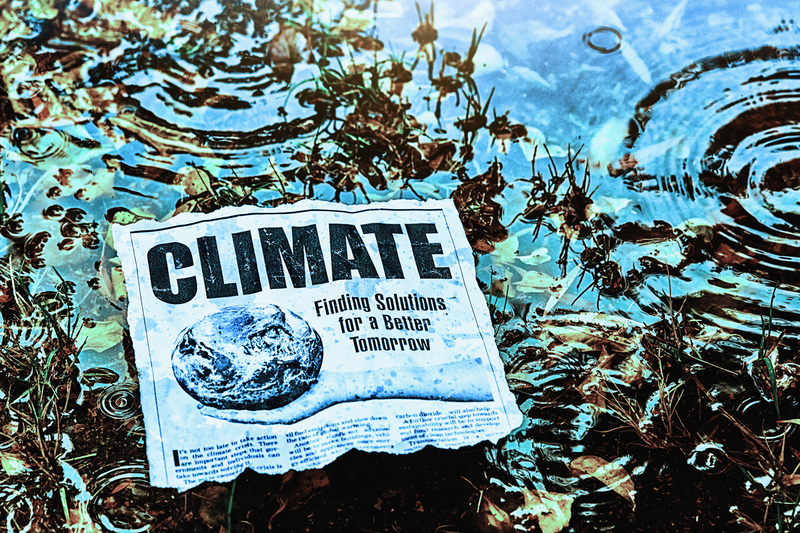‘The climate crisis is a public health crisis’
02 May 2024 | Story Stephen Langtry. Photo iStock. Read time 4 min.
On 23 April 2024, as part of a series of events to mark Green Week, the Green Campus Initiative (GCI) at the University of Cape Town (UCT) participated in a Climate Change and Health Seminar on the campus of the Faculty of Health Sciences (FHS). The seminar was hosted by James Irlam, a senior lecturer in the Primary Health Care Directorate.
“The climate crisis is a public health crisis,” said Malaika Delport of the GCI at the seminar, which started with a presentation by Dr Natasha Lalloo. Lauren Pinder and Aya Yokwe, two UCT students who participated in the Planetary Health Report Card (PHRC), also made a presentation.
Dr Lalloo, a medical doctor who graduated from UCT in 2015 and who also holds a Master of Science in Public Health from the London School of Hygiene & Tropical Medicine, spoke on the topic of “Planetary Health for Medical Doctors in South Africa”. She reflected on how climate change exacerbates existing health concerns and inequities. “Our health depends directly on our environment,” said Lalloo. “As we humans change the environment, these kinds of changes impact our health.”
“Impacts of climate change are seen everywhere but especially within vulnerable populations.”
Lalloo underscored the imperative for medical professionals to transcend traditional roles and become advocates for climate change mitigation and adaptation. She spoke about her experiences as a medical doctor in rural health in one of the hottest places in South Africa. “Impacts of climate change are seen everywhere but especially within vulnerable populations,” she said. Vulnerable populations include people living in areas with inadequate housing and infrastructure, as well as women and children.
Healthcare without harm
Speaking about the principle of “healthcare without harm”, Lalloo said, about 4% to 7% of the world’s carbon dioxide emissions are coming from the healthcare system. This is as much as one of the top carbon dioxide emitting countries in the world. She emphasised the essence of fostering sustainable healthcare practices. “Doctors need to have awareness in their practices to reduce the amount of waste they create and also consider and be intentional with the kinds of things they do,” she said.
Irlam echoed this sentiment: “It is rather ironic that a sector that is there to safeguard people’s health is actually causing harm to the very foundations of that health.”
Yokwe and Pinder spoke about the PHRC, which is a global student-led initiative to promote education about planetary health and environmentally sustainable healthcare on health sciences campuses. This is done through a metric-based report card. The 2024 version of the report card was published on Earth Day (22 April 2024). The UCT branch of the PHRC has also been assisting Stellenbosch University, the University of the Witwatersrand, and the University of KwaZulu-Natal to establish branches on their campuses.
A public health crisis
The seminar was rounded off with a presentation by Delport. She said that GCI has made it their mission to make “UCT a university that not only boast internationally acclaimed academic excellence but is also a forerunner in our fight against climate change”.
Delport underscored the urgency of collective action, emphasising that safeguarding planetary health is not merely an environmental concern but a fundamental public health imperative. The seminar emphasised the need for collaboration, advocacy, and innovation in addressing the complex challenges posed by climate change. From the exacerbation of infectious diseases to the escalating burden of non-communicable diseases, the ramifications of environmental degradation on human well-being were starkly evident.
The event reaffirmed the role of healthcare professionals in championing planetary health and underscored the urgency of concerted efforts to mitigate the impacts of climate change on public health.
 This work is licensed under a Creative Commons Attribution-NoDerivatives 4.0 International License.
This work is licensed under a Creative Commons Attribution-NoDerivatives 4.0 International License.
Please view the republishing articles page for more information.










